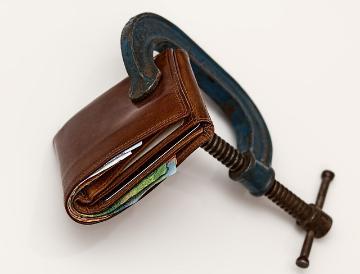
What does the duty to avoid conflicts of interest demand?
Hana Callaghan directs the Government Ethics Program at the Markkula Center for Applied Ethics at Santa Clara University in California. The opinions expressed are her own.
In January then President-elect Trump told the American people that the federal conflicts of interest laws do not apply to him as president. In that he is correct. However, just because something is legal, does not necessarily make it ethical.
Prior to inauguration the president-elect held a press conference promising to transfer legal title to his business holdings to a trust overseen by his sons in order to avoid conflicts of interest. At this press conference his attorney said, “President-elect Trump wants there to be no doubt in the minds of the American public that he is completely isolating himself from his business interests.” The actual trust document has never been disclosed.
At the time I questioned the effectiveness of the president’s solution. Since the president still had an ownership interest as the ultimate beneficiary, and since he would still be receiving accountings from his sons, as a factual matter the trust as set up would not completely isolate him from his business enterprises. By maintaining an ownership interest in his business, even a future one, the president-elect left the door open for future conflicts of interest.
However, we have now learned that the president has not only opened the door to potential conflicts of interest due to a future interest, he has eliminated any existing barrier the trust could provide between his current business interests and his public service. Pro Publica has just reported that the trust is revocable at any time and that in February the president quietly modified the Certification of Trust document (a summary of the powers of the trustee) to reflect that the president can receive distributions from the trust at his request. As a result, we now know that the trust vehicle is nothing more than a legal fiction--a smoke screen-- resulting in very little separation between the president and his assets.
Public officials, be they the dog catcher or the president of the United States, owe an ethical duty of loyalty to the public that they have been elected to serve. This means that they must put the public’s interest before their own. They also have a duty to maintain trust in government—because without public trust government doesn’t work. They therefore have a corresponding duty to avoid even the appearance of impropriety. This is why it has been the custom for our past presidents to put their assets in a blind trust.
President Trump’s trust does not eliminate possible conflicts or the appearance of conflicts. First, he has the power to keep tabs on the business through the quarterly accountings promised by his son. Second, he has the power to benefit from his business ventures, while president, by merely asking for a distribution. Third, if he doesn’t like the way his business is being managed he can revoke the trust arrangement at any time. He has retained so much control over his assets it is as though the trust doesn’t exist at all.
